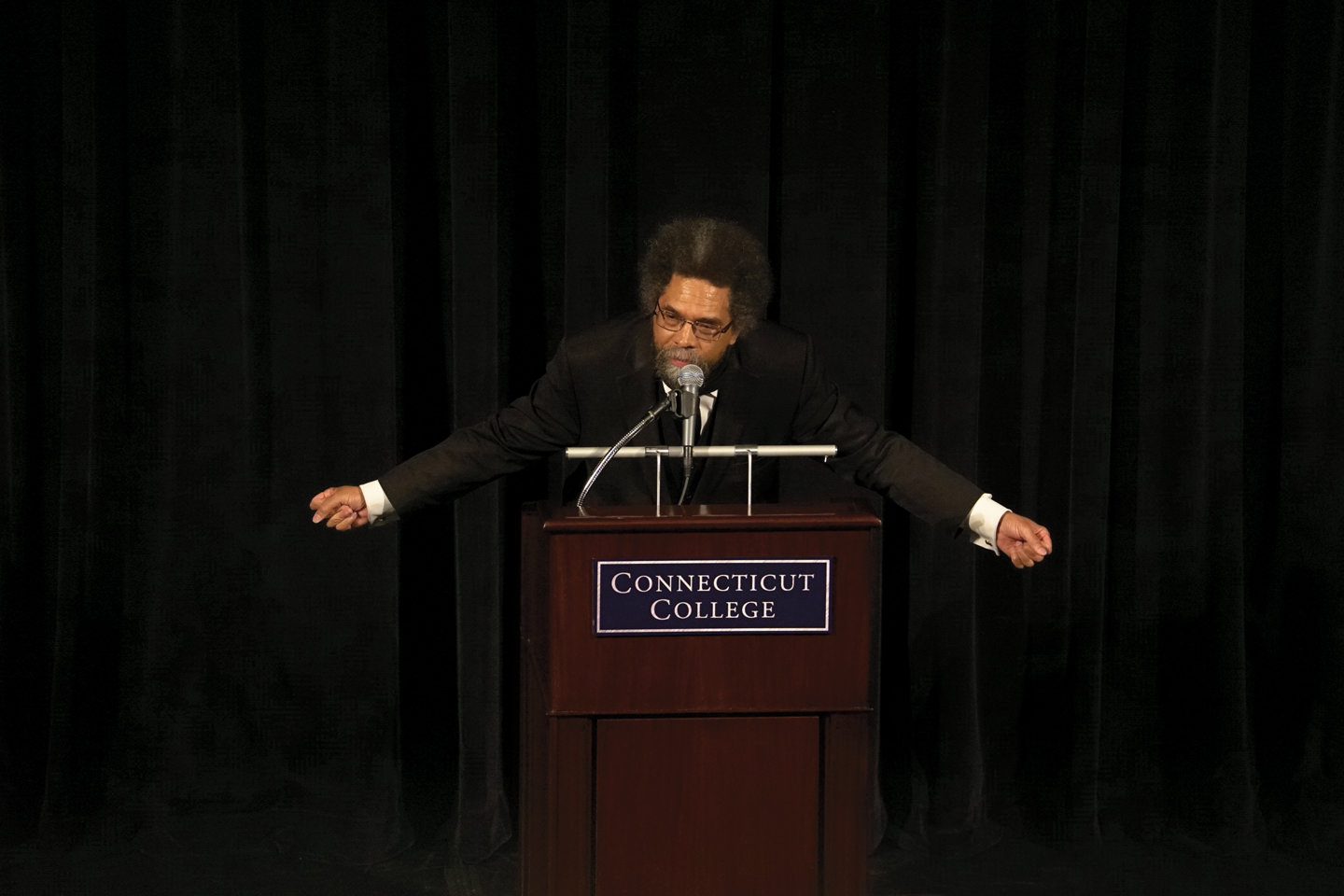Cornel West
Cornel West returns to Conn to commemorate the 10th anniversary of the College's Center for the Comparative Study of Race and Ethnicity.
Maria P. Gonzalez: You have spoken about your upbringing in a modest Baptist church, and your love and respect for
your family. Are faith and family a key to progress?
Cornel West: It's very important to begin on a note of piety, because piety's usually misunderstood. Piety is not uncritical deference to dogma. It's not blind faith. Piety is the recognition of those persons in your life and those forces in your life that have allowed you to engage in the endless quest for integrity, honesty, decency, and courage and vision. All of us have stories and narratives about such people and such forces in our lives. When you talk about race, gender, class or empire, be very candid about which traditions are shot through you in such a way that you decide to be a force for good. On a personal note, I am who I am because somebody loved me. Somebody cared for me. Somebody attended to me. I will never, never have a higher honor than being the second son
of the late Clifton and the present Irene B. West.
MG: What do you see as a moral challenge for students today as they prepare to move on from college?
CW: One of the great challenges of the younger generation will be, can you sustain your quest for integrity as you move from this grand institution? Because cupidity and venality will be coming at you daily. It's not a matter of not compromising. Sometimes you must compromise. That's prudence. Prudence has a moral vision that informs the choice. You have concessions that you're willing to make, but you then refortify yourself in the quest for justice, in the quest for integrity. And let us never confuse integrity with purity. We're all fallible. We're all finite. That's why we need each other. That's why dialogue is so important. That's why democratic public spaces in which dialogue about the most fundamental issues facing our society, domestic and foreign policy, become so crucial.
MG: And what's the goal for discourse once students are in those public spaces?
CW: We cast a light, a spotlight, in our quest for integrity and honesty so that what is hidden and concealed can come to the fore. And not in the spirit of just name-calling or finger-pointing, because all Americans are responsible. We want to make sure that all students, no matter what color, can come into a public space without any sense of humiliation, be free to raise their voices, mediate their conversations with respect, but also acknowledge that given the history of racism and sexism and antisemitism and anti-Arab sensibilities in the nation, it will spill over. But as it does spill over, there will be accountability.
MG: What can today's causes and youth-driven movements take away from the early days of the civil rights movement in the U.S.?
CW: What Emmett Till's mother said in August of 1955 is a starting point. When they put her baby in front of her … she looked right in the camera and she said, "I don't have a minute to hate. I will pursue justice for the rest of my life." That's spiritual fortitude. She spoke on behalf not just of the best of black people, not just of the best of America, but of the best of the species and of humanity in the face of that kind of catastrophe, brute force. I will be courageous without trying to crush those who crushed my baby.
